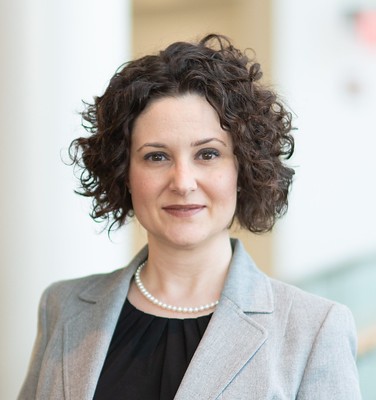NALC webinar to provide overview of U.S. charitable food system
“It’s important to understand the important role that charitable food programs play for millions of people every day and what it means for those who donate food.” — Harrison Pittman
By Tru Joi Curtis
National Agricultural Law Center
U of A System Division of Agriculture
June 13, 2023
Fast facts
- NALC webinar on June 21 highlights the U.S. charitable food system and federal and state food surplus programs.
- Audry Thompson of Penn State Law is presenting.
- Registration is online.
(415 words)
Download related photo of Thompson
FAYETTEVILLE, Ark. — Food insecurity affects more than 34 million Americans in the United States and more than a quarter of them are children, according to Feeding America, a nationwide network of food banks.
To help those facing hunger, farmers and food processors all play a role by assisting the U.S. charitable food system and federal and state food surplus programs. The U.S. charitable food system includes a network of over 200 food banks: regional organizations that source, warehouse and distribute food.
“Food insecurity is an issue that has so many facets,” National Agricultural Law Center Director Harrison Pittman said. “It’s important to understand the important role that charitable food programs play for millions of people every day and what it means for those who donate food.”
The U.S. charitable food system’s success depends on connecting food producers with consumers. This allows donations by producers to be distributed to consumers and families in need.
“Ensuring food security for families and children within the United States is essential,” Audry Thompson, staff attorney at the Penn State Center for Agricultural and Shale Law, said. “Food processors, as well as agricultural producers, play an important role in providing necessary assistance through the charitable food system.”
With recent higher grocery costs, the need for surplus donations is more urgent. Producers who donate benefit from various forms of protection, including liability.
Thompson will discuss the federal and state food surplus programs, as well as how they connect agricultural producers with consumers, in the NALC’s next webinar, “An Overview of U.S. Charitable Food Surplus Programs.” The webinar will be held on Wednesday, June 21, at 11 a.m. Central/noon Eastern.
“This webinar will highlight these programs, discuss how federal and state programs connect producers with consumers, and outline liability and other protections put into place for those donating their surplus,” Thompson said.
The webinar is free of charge and registration is online.
“We’re looking forward to hearing Audry discuss these programs that work to benefit millions of Americans who are in need,” Pittman said. “With the current need for surplus donations from producers, it is extremely important that people know more about charitable food programs in the U.S.”
For information about the National Agricultural Law Center, visit nationalaglawcenter.org or follow @Nataglaw on Twitter. The National Agricultural Law Center is also on Facebook and LinkedIn.
For updates on agricultural law and policy developments, subscribe free of charge
to The Feed, the NALC’s newsletter highlighting recent legal developments facing agriculture,
which issues twice a month.
About the National Agricultural Law Center
The National Agricultural Law Center serves as the nation’s leading source of agricultural
and food law research and information. The NALC works with producers, state and federal
policymakers, Congressional staffers, attorneys, land grant universities, and many
others to provide objective, nonpartisan agricultural and food law research and information
to the nation’s agricultural community.
The NALC is a unit of the University of Arkansas System Division of Agriculture and
works in close partnership with the USDA Agricultural Research Service, National Agricultural
Library.
About the Division of Agriculture
The University of Arkansas System Division of Agriculture’s mission is to strengthen
agriculture, communities, and families by connecting trusted research to the adoption
of best practices. The Division of Agriculture conducts research and extension work
within the nation’s historic land grant education system through the Agricultural
Experiment Station and the Cooperative Extension Service.
The Division of Agriculture is one of 20 entities within the University of Arkansas
System. It has offices in all 75 counties in Arkansas and faculty on five system campuses.
The University of Arkansas System Division of Agriculture is an equal opportunity
institution. If you require a reasonable accommodation to participate or need materials
in another format, please contact dviguet@uark.edu as soon as possible. Dial 711 for
Arkansas Relay.
# # #
Media contact:
Drew Viguet
Communications & Special Projects Coordinator
National Agricultural Law Center
dviguet@uark.edu
